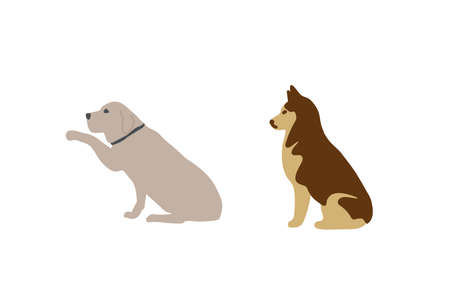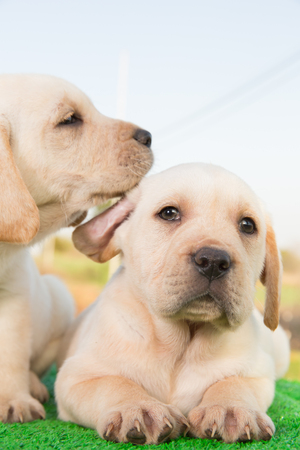1. Understanding Herd Immunity
Herd immunity is a crucial concept in both human and animal health. It refers to the protection a population gains when a significant percentage of individuals become immune to a disease, either through vaccination or previous infections. This collective immunity helps prevent the spread of contagious diseases, protecting even those who are not vaccinated.
How Does Herd Immunity Work?
When enough individuals in a community are immune to a disease, it becomes difficult for the pathogen to spread. This protects vulnerable members of the population, such as newborns, elderly pets, or those with weakened immune systems. Below is a simple breakdown of how herd immunity functions:
| Immunity Level | Disease Spread | Impact on Community |
|---|---|---|
| Low Vaccination Rate | High | Disease spreads rapidly, affecting many individuals. |
| Moderate Vaccination Rate | Reduced | Disease spreads slower but can still cause outbreaks. |
| High Vaccination Rate | Minimal | Disease struggles to spread, protecting even unvaccinated individuals. |
The Role of Vaccination in Achieving Herd Immunity
The most effective way to establish herd immunity is through vaccinations. In both humans and animals, vaccines help train the immune system to recognize and fight off specific pathogens before they can cause illness. Without widespread vaccination, diseases that were once controlled can resurface and spread quickly.
Herd Immunity in Animal Populations
This concept applies not just to humans but also to pets and livestock. When the majority of animals in a community are vaccinated against common diseases like rabies, parvovirus, or distemper, it reduces the risk of an outbreak. This is particularly important for pets that frequently interact with other animals at parks, boarding facilities, or veterinary clinics.
Why Is Herd Immunity Important for Pets?
Unvaccinated pets are more susceptible to serious illnesses that can be costly to treat and potentially fatal. By ensuring that a large portion of the pet population is immunized, we create a safer environment for all animals—including those who cannot receive vaccines due to medical conditions.
2. The Role of Vaccinations in Pet Health
Vaccinations play a crucial role in keeping pets healthy and preventing the spread of contagious diseases. Just like in humans, vaccines help prepare an animals immune system to fight off infections before they become serious or life-threatening. By vaccinating pets, we not only protect them as individuals but also contribute to the overall health of the pet community.
How Vaccines Prevent Disease Spread
When a pet receives a vaccine, their immune system learns how to recognize and fight specific viruses or bacteria. This means that if they are ever exposed to the disease in the future, their body can respond quickly and effectively, reducing the severity of illness or preventing infection altogether. Vaccination lowers the chances of outbreaks within neighborhoods, shelters, and even dog parks where pets frequently interact.
Protecting Individual Pets and the Community
Vaccinating pets does more than just keep one animal safe—it helps build herd immunity. Herd immunity occurs when a significant portion of the pet population is vaccinated, making it harder for diseases to spread. This is especially important for animals that cannot be vaccinated due to age, medical conditions, or weakened immune systems.
Core vs. Non-Core Vaccines
Pet vaccines are generally divided into two categories: core and non-core vaccines. Core vaccines are essential for all pets because they protect against highly contagious and potentially fatal diseases. Non-core vaccines are recommended based on factors such as lifestyle, location, and risk of exposure.
| Vaccine Type | Description | Examples |
|---|---|---|
| Core Vaccines | Essential for all pets to prevent severe diseases. | Rabies, Distemper, Parvovirus (for dogs); Feline Herpesvirus, Calicivirus (for cats) |
| Non-Core Vaccines | Recommended based on lifestyle and location. | Bordetella (Kennel Cough), Lyme Disease (for dogs); Feline Leukemia Virus (for cats) |
The Importance of Regular Booster Shots
Puppies and kittens receive initial vaccinations at a young age, but regular booster shots are necessary to maintain immunity throughout their lives. Veterinarians typically provide a vaccination schedule tailored to each pet’s needs, ensuring they stay protected from evolving disease threats.
By staying up to date with pet vaccinations, owners play a vital role in preventing disease outbreaks and keeping both their own pets and the larger community safe. Ensuring widespread vaccination helps create a healthier environment for all animals while reducing the risks associated with preventable illnesses.

3. How Herd Immunity Relates to Pet Vaccinations
Herd immunity is a crucial concept in disease control, not just for humans but also for animals. When a large percentage of pets in a community are vaccinated, the spread of contagious diseases decreases significantly. This protects not only vaccinated pets but also those that cannot be vaccinated due to age, health conditions, or other factors.
How Vaccinating Pets Contributes to Disease Control
Vaccinating pets plays a key role in maintaining herd immunity. When more pets are immunized, infectious diseases struggle to spread, reducing outbreaks and keeping all animals safer. Here’s how pet vaccinations contribute to overall disease control:
| Benefit | Description |
|---|---|
| Reduces Disease Spread | Vaccinated pets are less likely to contract and transmit diseases, lowering the risk for all animals. |
| Protects Vulnerable Pets | Puppies, kittens, elderly pets, and those with compromised immune systems benefit from herd immunity when others are vaccinated. |
| Lowers Veterinary Costs | Preventing disease through vaccination is often much cheaper than treating a sick pet. |
| Enhances Public Health | Certain pet diseases, like rabies, can spread to humans. Keeping pets vaccinated helps prevent zoonotic infections. |
The Role of Community Participation
A strong herd immunity effect relies on community participation. When pet owners take responsibility for vaccinating their animals, they contribute to the health and safety of all pets in the area. In neighborhoods where most pets are vaccinated, outbreaks of dangerous diseases like parvovirus and distemper become rare.
The Risks of Low Vaccination Rates
If too few pets receive vaccines, contagious diseases can spread rapidly. This puts unvaccinated and vulnerable animals at serious risk. Areas with low vaccination rates often see outbreaks that could have been prevented with proper immunization efforts.
A Simple Step for a Healthier Future
The good news is that achieving herd immunity for pets is simple—regular vaccinations help keep communities safe and healthy. By staying up to date on your pet’s vaccines and encouraging others to do the same, you play an important role in preventing disease outbreaks.
4. Common Preventable Diseases in Pets
Vaccinating your pets is one of the most effective ways to keep them safe from serious illnesses. Many dangerous diseases can be prevented through proper vaccination, helping not only individual pets but also the larger pet community by contributing to herd immunity.
Rabies
Rabies is one of the most well-known and deadly diseases that affect both animals and humans. It spreads through bites from infected animals and attacks the nervous system, leading to fatal consequences if untreated. Vaccination is required by law in many places due to its risk to public health.
Distemper
Canine distemper is a highly contagious viral disease that affects dogs and some wild animals. It impacts multiple body systems, including the respiratory, gastrointestinal, and nervous systems. Symptoms include fever, nasal discharge, seizures, and paralysis. There is no cure for distemper, making vaccination essential for prevention.
Parvovirus
Parvovirus is a severe and often fatal disease that primarily affects puppies. It causes extreme vomiting, diarrhea, dehydration, and weakness. The virus spreads easily through contaminated surfaces, making unvaccinated puppies particularly vulnerable. Fortunately, routine vaccinations can prevent this devastating illness.
Other Preventable Diseases
Apart from rabies, distemper, and parvovirus, several other diseases can also be prevented through vaccinations:
| Disease | Affected Pets | Main Symptoms | Prevention |
|---|---|---|---|
| Bordetella (Kennel Cough) | Dogs | Coughing, sneezing, nasal discharge | Bordetella vaccine |
| Feline Leukemia Virus (FeLV) | Cats | Lethargy, weight loss, immune suppression | FeLV vaccine |
| Leptospirosis | Dogs | Fever, vomiting, kidney and liver damage | Leptospirosis vaccine |
| Panleukopenia (Feline Distemper) | Cats | Lethargy, vomiting, diarrhea | PVRCP vaccine |
The best way to protect your pets from these harmful diseases is by keeping up with their vaccination schedule as recommended by your veterinarian. By doing so, you are not only ensuring their well-being but also contributing to a healthier pet population overall.
5. The Impact of Low Vaccination Rates
When pet vaccination rates drop, the risk of disease outbreaks increases significantly. Vaccines play a crucial role in protecting not only individual pets but also the broader pet community through herd immunity. Without sufficient vaccination coverage, contagious diseases can spread rapidly among animals, leading to serious health consequences and financial burdens for pet owners.
Increased Risk of Disease Outbreaks
Low vaccination rates create an environment where infectious diseases, such as parvovirus, distemper, and rabies, can thrive. These illnesses are highly contagious and often fatal if left untreated. When fewer pets are vaccinated, even those that have received their shots are at a higher risk because no vaccine is 100% effective without herd immunity providing additional protection.
Common Diseases Linked to Low Vaccination Rates
| Disease | Mode of Transmission | Potential Impact |
|---|---|---|
| Canine Parvovirus | Direct contact with infected feces or surfaces | Severe vomiting, diarrhea, dehydration, and often fatal without treatment |
| Feline Panleukopenia | Contact with infected bodily fluids or contaminated objects | Fever, lethargy, vomiting, and high mortality rates in kittens |
| Rabies | Bite from an infected animal | Fatal once symptoms appear; poses a public health risk to humans as well |
| Canine Distemper | Aerosol droplets from infected animals | Severe respiratory issues, neurological damage, and high fatality rate |
Higher Veterinary Costs for Pet Owners
The financial burden associated with treating preventable diseases is another major consequence of low vaccination rates. Many of these illnesses require intensive veterinary care, including hospitalization, IV fluids, and medications. In severe cases, long-term complications may arise, leading to ongoing medical expenses.
Cost Comparison: Prevention vs. Treatment
| Disease | Vaccine Cost (Approx.) | Treatment Cost (Approx.) |
|---|---|---|
| Canine Parvovirus | $20 – $50 per dose | $1,000 – $5,000 for hospitalization and supportive care |
| Feline Panleukopenia | $25 – $50 per dose | $500 – $2,000 depending on severity of illness |
| Rabies | $15 – $30 per dose | Fatal if untreated; post-exposure shots for humans cost $3,000+ |
| Canine Distemper | $20 – $40 per dose | $1,000+ for supportive care; permanent neurological damage possible |
The Role of Herd Immunity in Preventing These Issues
Herd immunity helps keep disease outbreaks under control by reducing the number of susceptible hosts for infections to spread. When a significant portion of the pet population is vaccinated, even unvaccinated or immune-compromised animals benefit from lower overall exposure risks. This collective protection ensures that devastating outbreaks remain rare and manageable.
The Bottom Line for Pet Owners
Keeping your pets up to date on vaccinations not only protects them but also safeguards the entire pet community. By ensuring widespread vaccination coverage, pet owners can help prevent costly treatments and reduce the chances of deadly disease outbreaks. Investing in routine vaccines today means avoiding unnecessary suffering and expenses in the future.
6. Encouraging Responsible Pet Ownership
Ensuring your pet is vaccinated isn’t just about keeping them safe—it’s also about protecting the wider community. Herd immunity works when a large percentage of pets are vaccinated, reducing the spread of diseases. As a responsible pet owner, you play a vital role in maintaining this protection.
Steps to Keep Your Pet Vaccinated and Healthy
Taking proactive steps can help ensure your pet stays up to date on vaccinations and contributes to overall public health.
1. Schedule Regular Vet Visits
Routine veterinary check-ups help keep track of your pet’s vaccination schedule. Your vet can provide guidance on core and non-core vaccines based on your pet’s lifestyle and risk factors.
2. Keep a Vaccination Record
Maintaining a record of your pet’s vaccinations ensures they stay on schedule. You can use a notebook, digital app, or ask your vet for printed records.
3. Follow Local Vaccination Laws
Different states and cities have specific vaccination requirements, such as mandatory rabies shots. Check with your local animal control office or veterinarian to ensure compliance.
4. Educate Other Pet Owners
Spread awareness about the importance of vaccinations among fellow pet owners. Sharing knowledge helps strengthen herd immunity within your community.
5. Take Advantage of Low-Cost Clinics
If cost is a concern, look for affordable vaccination clinics hosted by shelters, rescues, or local veterinary organizations.
Common Core Vaccines for Pets
The following table provides an overview of essential vaccines recommended for dogs and cats:
| Pet | Core Vaccines |
|---|---|
| Dogs | Rabies, Distemper, Parvovirus, Adenovirus |
| Cats | Rabies, Feline Calicivirus, Feline Herpesvirus-1, Panleukopenia |
Your Role in Community Health
Your commitment to vaccinating your pet doesn’t just protect them—it helps reduce outbreaks and keeps all pets healthier. By staying informed and proactive, you contribute to a safer environment for both animals and people alike.


